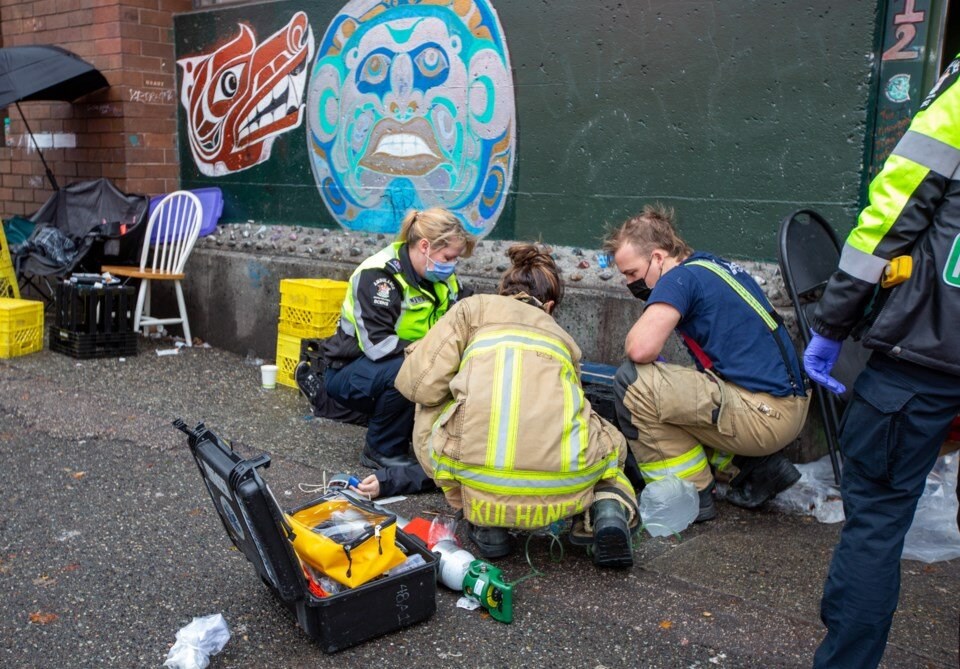Over the first three months of 2023, almost 600 people have died of a toxic drug overdose across B.C., the second-highest total ever recorded, according to preliminary data from the B.C. Coroners’ Service.
Between January and March, 596 lives were lost to toxic drugs, equating to more than six deaths a day. The numbers come seven years into the longest public health emergency in the province’s history, said chief coroner Lisa Lapointe in a statement Tuesday.
“Since the emergency was first declared, more than 11,000 people have lost their lives due to the unregulated drug supply,” Lapointe said.
“This is a crisis of incomprehensible scale, and I extend my deepest condolences to everyone who has experienced the loss of someone they loved.”
The latest release of toxic drug death data also adjusted the number of people who died in 2022 to 2,314, making it the deadliest year on record. The staggering human toll outpaces the combined deaths due to homicides, suicides, motor vehicle accidents, drownings and fire-related deaths.
So far this year, 71 per cent of those who died were between 30 and 59, and more than two-thirds were male. Vancouver, Surrey and Greater Victoria saw the highest number of drug-related deaths
Northern Health and Vancouver Coastal Health have seen the highest rates of toxic drug death so far this year. Fraser Health and Interior Health appear to be seeing a relative decline in deaths per 100,000 people, while Island Health continues to see an increase.
Between 2017 and 2022, fentanyl was detected in well over 80 per cent of toxic drug deaths.
Nearly half of the deaths in 2023 have been in private residences, while 15 per cent occurred outside. Only two deaths have ever occurred at an overdose prevention site — one in 2022 and one in 2023.
Minister of Mental Health Addictions Jennifer Whiteside said the province plans to bolster spending in the 2023 budget on mental health and addiction services.
“We’re also making sure young people get the care and support they need, with a focus on early intervention,” she said in a statement.
In an effort to curb the rising death toll from a toxic drug supply, last year, B.C. legalized the possession of up to 2.5 grams of hard drugs like cocaine, methamphetamine and opioids like heroin and fentanyl.
The federal exemption, which applies to people over 18, was enacted in January 2023 and will run as a pilot until 2026.



